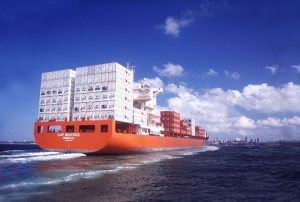Significant gains were made in negotiations to finalise the Trans Pacific Partnership, the world’s biggest regional trade deal, and a conclusion definitely remains within reach, Trade minister Andrew Robb said on Saturday, after the Hawaii talks failed to reach a final agreement on the $200 billion pact.
 “We all went to Hawaii with the aim of concluding and while we didn’t quite get there we are definitely on the cusp. Most importantly the resolve remains to get this done,” Mr Robb said.
“We all went to Hawaii with the aim of concluding and while we didn’t quite get there we are definitely on the cusp. Most importantly the resolve remains to get this done,” Mr Robb said.
“While nothing is agreed until everything is agreed, I would say we have taken provisional decisions on more than 90 per cent of issues and during my involvement in TPP (Trans-Pacific Partnership Agreement) negotiations this has been by far the most productive meeting at both ministerial and officials’ level.”
“The provisional decisions already taken would make this the biggest regional agreement in the world and the most significant agreement since the conclusion of the Uruguay round more than 20 years ago,” Mr Robb said.
“From Australia’s perspective we have made significant gains across every area, including agricultural market access. There are a handful of big outstanding issues that directly affect us as well some moving parts involving other countries in areas like automotives, data protection around biologics, dairy and also sugar.
“There has been progress in all of these and from my reading the issues are not intractable and there remains a real determination to conclude the TPP among all parties,” he said.
Mr Robb said the TPP involved 12 countries which accounted for almost 40 percent of GDP and presented an opportunity for truly transformational reform.
“The establishment of a set of common trade and investment rules across these 12 countries – with the prospect of others joining in the future – will have a most material affect in terms of lowering the cost of doing business.
“This in itself will support some quite profound economic benefits in terms of growth, job creation and higher living standards and that is on top of significant market access gains for our exports and services and a more conducive investment environment,” Mr Robb said.
Australia is committed to concluding the negotiations and will continue working closely with TPP partners in advance of meeting again in the near future.
The 12 countries negotiating the TPP are Australia, Brunei Darussalam, Canada, Chile, Japan, Malaysia, Mexico, Peru, New Zealand, Singapore, the United States and Vietnam. Together they constitute around 40 percent of global GDP.
A third of all Australia’s exports of goods and services are to TPP countries and 45 per cent of the stock of Australian outwards investment. Negotiations began in 2010.
NFF continues to support TPP despite setback
The National Farmers’ Federation (NFF) has also reiterated its support for the Trans Pacific Partnership (TPP) trade pact despite the failure to reach an agreement in Hawaii.
The NFF said it was important that a final agreement was reached on a comprehensive and trade liberalising pact that will deliver real benefits for Australian farmers.
NFF said it understood the Ministers from the 12 participating countries had made significant progress during the talks this week and recognised agriculture was always one of the most difficult areas to reach agreement on.
“Good outcomes across the board for Australian agriculture from the TPP has always been the objective for the NFF and sustained commitment is again required to bring the agreement to a close and ensure it provides commercial value back to the farm sector,” the NFF statement said.
“As talks wind up in Maui, it is disappointing a deal that would provide improved outcomes for Australian farmers has not been concluded but NFF recognises the hard work of Minister Robb and the government officials in what has been a challenging round of negotiations.
“The NFF remains a firm supporter of the TPP as a key platform to drive increased trade and investment. A good agreement will provide significantly improved opportunities for Australian farmers to sell products to markets we know are demanding high quality food and fibre.”
The TPP would be the world’s largest regional free trade agreement with the 12 countries involved accounting for around 40 per cent of the global economy and comprising more than 800 million people.
The TPP is being negotiated between Australia, Brunei Darussalam, Canada, Chile, Japan, Malaysia, Mexico, Peru, New Zealand, Singapore, the United States and Vietnam.
Source: Federal minister for Trade, National Farmers Federation

What has happened to the most important question? Where do we stand in relation to the ISDS? Howard had the sense to veto it. Has Robb also vetoed it or has he caved in?